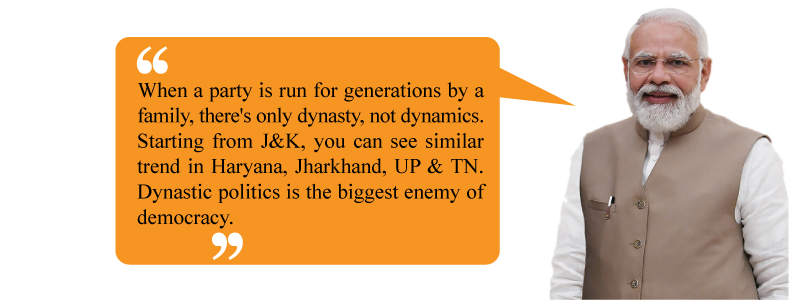In recent decades, the number of dynastic parties in several democratic countries has witnessed phenomenal growth. Dynastic parties, controlled by particular families for generations, became common. These parties had dynasts holding the Presidency and other key officebearers from the same family as the Party Chief. This established a dominant mechanism where the ruling dynasty tightly controlled party finance, membership, candidacy, and decisions regarding alliances and political partnerships. In various countries, including several states in India, regulations for voluntary organizations prohibited two related individuals from becoming office bearers to prevent conflicts of interest and promote high standards of morality and ethics. Unfortunately, many political parties in India chose to ignore this principle, treating party organizations as family property.
The rise of dynastic parties represented a covert endorsement of birth-based discrimination. Such parties rarely functioned within a genuinely democratic framework, often conducting internal elections with predetermined outcomes. Organizational growth was stifled as new leadership was not allowed to emerge, limiting the potential for genuine democratic development. Consequently, these political parties often operated through regional satraps loyal to the central ruling dynasty. This structure created a network of dynasties with a supreme dynasty at the centre, ultimately resulting in coterie-governed units. When successful, these parties sought popular mandates and assumed control over governance, affecting millions.
Dynastic parties posed significant threats to democracy for several reasons. First, democracy relies on the element of choice provided by political parties. Without genuine political parties, the democratic process is undermined. Second, leadership within dynastic parties often disregarded merit, compromising their ability to govern effectively. Third, the primary motivation behind dynastic control was to dominate party finances, increasing the likelihood of corruption and financial malfeasance. Nepotism, favouritism, and discrimination based on familial affiliation became the norm, adversely impacting democratic governance.
Given these challenges, there was an urgent need to analyze the threat posed by dynastic parties and foster a dispassionate debate to strengthen democratic governance in India. The persistence of dynastic political parties in India and other democracies raised critical questions: Were these parties tools to discredit democracy? Did they create conditions conducive to the emergence of autocratic regimes?
To address these pressing issues, Rambhau Mhalgi Prabodhini organized a National Seminar titled ‘The Threat of Dynastic Political Parties to Democratic Governance’. The seminar brought together scholars, political analysts, policymakers, and civil society members to examine the rise and impact of dynastic political parties on democratic institutions; discuss the implications for governance, meritocracy, and corruption; debate potential reforms to ensure internal democracy within political parties; and formulate strategies to strengthen democratic governance and prevent the entrenchment of dynastic politics.
This seminar aimed to comprehensively understand the threats posed by dynastic parties and propose actionable solutions for enhancing the quality of democracy in India and beyond. By fostering an informed and balanced discussion, we hoped to contribute to the deepening of democratic values and practices.


